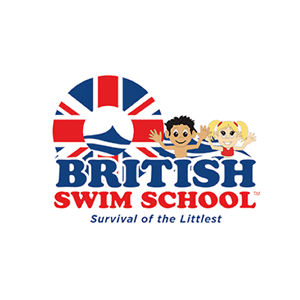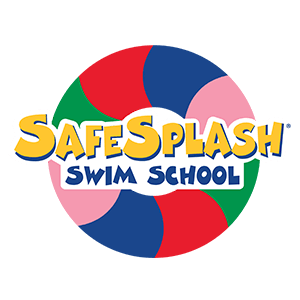British Swim School Franchise in 2025: Costs, Fee & FDD
Discover why British Swim School stands out in the competitive swim instruction industry. Learn about its proven business model, low overhead costs, and growing market demand, making it a top choice for potential franchisees.
Table of Contents:
British Swim School is a standout in the realm of swimming instruction, founded by Rita Goldberg in 1981. Goldberg, a former competitive swimmer from the UK, recognized a gap in swim education focused on water survival skills, which led her to develop a unique curriculum that prioritizes safety and confidence in the water. British Swim School’s significance in the industry stems from its mission-driven approach to preventing drownings and promoting water safety, making it not just a business but a life-saving initiative.
The core offerings of British Swim School revolve around its signature water survival and learn-to-swim programs, which cater to infants, children, and even adults. These programs are designed to build water competency from a young age, making them the go-to choice for parents who prioritize their children’s safety. Ancillary services include stroke development classes and private lessons, catering to more advanced swimmers. The core market includes parents with young children, but it also appeals to adult learners and families looking for a comprehensive swimming education.
Currently, British Swim School operates on an impressive scale, with over 240 locations across the United States and Canada. The franchise continues to grow, with a daily customer base that includes thousands of students. This wide-reaching presence reflects the strong demand for quality swim instruction and the franchise’s ability to scale effectively across different regions.
British Swim School offers robust support to its franchisees, starting with an extensive training program that covers both the business and instructional sides of the operation. Franchisees receive ongoing support in marketing, operations, and customer service, ensuring they are well-equipped to run a successful business. The franchise also provides access to a proven curriculum and teaching methods, as well as the latest technology to manage student progress. These highlights make British Swim School a compelling opportunity for those passionate about both business and making a positive impact in their communities.
British Swim School Franchise Insights
- Rapid Expansion: Over the past three years, British Swim School has achieved an impressive growth rate of 80%, significantly outpacing the industry median of 11% and the all-franchise median of 8%.
- Strong Franchise Health: The franchise boasts a low failure rate of just 2% over one year and 5% over three years, which is better than the all-franchise median of 10% over three years.
- Franchise Success: With 189 franchised units across the U.S. and a franchisee satisfaction rate reflected by its low franchise-for-sale rate of 1% over the past year, British Swim School is a stable and attractive investment opportunity.
- Established Presence: Founded in 2011, British Swim School has maintained its reputation and grown its presence steadily, with its headquarters located in Virginia Beach, VA.
British Swim School Franchise Key indicators
Unit Growth YOY (%)
5%
vs industry 1%
Total U.S. Franchised Units
189
3-Year Failure Rate
5%
vs industry 11%
Sales-to-Investment ratio
0.9:1
How much does it cost to open a British Swim School franchise?
Understanding the potential investment size and capital requirements is crucial when considering opening a British Swim School franchise. These financial commitments, including initial franchise fees, equipment costs, and ongoing operational expenses, impact the feasibility and profitability of the venture. Thoroughly evaluating these factors ensures that potential franchisees are prepared for the financial responsibilities and can make informed decisions about their ability to sustain and grow the business, ultimately contributing to long-term success.
Min & Max Investment
Opening a British Swim School franchise involves several key costs, which are outlined in Item 7 of the Franchise Disclosure Document (FDD). You can see a breakdown of the costs to open a British Swim School below from the most recent Item 7 below:
| Type of Expenditure | Minimum Investment | Maximum Investment |
|---|---|---|
| Initial Franchise Fee | $55,000 | $55,000 |
| Mailer Program Set-Up Fee | $1,000 | $1,000 |
| Mailing List Fee | $250 | $250 |
| Postcard Fees | $10,750 | $10,750 |
| SEO Fees | $3,600 | $3,600 |
| Digital Marketing Fees | $12,000 | $12,000 |
| Pool Security Deposit | $0 | $1,000 |
| Pool Usage Fee (3 months) | $1,500 | $9,000 |
| Opening Inventory (pool equipment, training supplies, learning aids) | $3,050 | $6,100 |
| Signage | $250 | $750 |
| Training: Travel and Living Expenses | $1,500 | $4,000 |
| Accountant and Legal Fees | $300 | $1,000 |
| Insurance Premium | $2,400 | $5,000 |
| Computer System | $0 | $3,500 |
| Office Security Deposit | $0 | $1,500 |
| Office Rent, Office Furniture, Fixtures, and Equipment (3 Months) | $0 | $4,500 |
| Technology Fee (3 Months) | $750 | $750 |
| First 3 Months of Aquatics Manager | $7,500 | $10,500 |
| Additional Funds (3 Months) | $9,000 | $15,000 |
| Total Estimated Initial Investment | $108,850 | $145,200 |
Item 7 in the Franchise Disclosure Document (FDD) is the “Estimated Initial Investment” section. It outlines the total costs a franchisee can expect to incur when starting a franchise, including the initial franchise fee, equipment, inventory, real estate, and other startup expenses. This section is crucial because it provides potential franchisees with a detailed understanding of the financial commitment required, helping them assess affordability and plan their investment strategy effectively.
Required Capital
To open a British Swim School franchise, the required capital involves both the initial investment costs and a net worth requirement set by British Swim School. Let’s take a closer look below:
- Initial Investment As shown above, the total estimated initial investment ranges from $108,850 to $145,200. This includes all the startup costs such as the franchise fee, real estate, construction, equipment, initial inventory, and additional funds for initial operating expenses. Assuming that you will finance your franchise investment, you should plan to have 20% of the total investment amount in the form of equity (cash) for the investment.
- Liquid Assets Requirement British Swim School typically requires franchisees to have a minimum of $141,525 in non-borrowed personal resources (liquid assets). This ensures the franchisee has sufficient funds to cover ongoing expenses and maintain financial stability during the startup phase.
- Net Worth Requirement While specific net worth requirements for British Swim School can vary, it is generally recommended that franchisees have a net worth of at least $250,000 to $500,000. This includes the value of assets like real estate, investments, and personal property, minus any liabilities.
How much does a British Swim School franchise owner make?
Calculating the salary of a British Swim School franchise owner involves analyzing gross sales to determine total revenue, assessing operational efficiency to understand profit margins, and accounting for franchisor fees and additional expenses such as rent, utilities, and payroll. Effective management of these factors can significantly impact the profitability and financial success of a British Swim School franchise owner. This comprehensive financial analysis helps estimate net profits, from which the owner’s salary can be derived. A clear understanding of these factors ensures accurate salary projections and financial planning for sustainable business operations.
British Swim School Revenue & Gross Sales
Based on most recent analysis, British Swim School franchises achieved a median gross sales of $476,334, reflecting a 8% increase from the previous year. This strong financial performance underscores the brand’s robust consumer demand and potential for significant revenue generation.
Which key factors impact the average revenue performance of British Swim School franchisees?
The growth of U.S. franchisee median gross sales revenue for British Swim School in recent years can likely be attributed to several key factors. First, the increasing awareness of water safety and the importance of early swim education has driven more parents to enroll their children in swim programs, boosting enrollment numbers. Additionally, British Swim School’s proven and adaptable business model, which allows franchisees to operate in various types of pools, has enabled expansion into new markets with lower overhead costs. Moreover, strong franchisee support and effective marketing strategies have likely contributed to consistent revenue growth, helping franchisees maximize their sales potential during this period.
British Swim School Franchise Operational Costs
When opening a British Swim School franchise, the key primary ongoing operational costs you’ll need to consider include:
- Pool Rental Fees Since classes are often held in third-party pools, you’ll need to account for the cost of renting these facilities, which can vary depending on the location and frequency of use.
- Instructor Salaries Paying qualified swim instructors is a significant ongoing cost. Their compensation may vary based on experience and local wage standards.
- Marketing and Local Advertising While national marketing is typically covered by a marketing fund, local advertising efforts to attract and retain customers in your specific area will require additional budget.
- Equipment and Supplies Regular replacement of swim equipment, safety gear, and other class-related materials is necessary to maintain a high standard of service.
- Insurance Liability insurance is crucial for a swim school, covering potential accidents or incidents during lessons, and this will be a regular expense.
- Technology and Software Costs for customer management systems, scheduling software, and other digital tools necessary to run the business efficiently should be factored into your budget.
British Swim School Franchise Fees
All franchises tend to charge ongoing fees that franchisees are required to pay to operate. British Swim School requires their franchisees to pay the below fees:
- Royalty Fee This is a monthly fee paid to British Swim School, typically calculated as a percentage of gross sales. For British Swim School, this fee is 10% of the restaurant’s monthly gross sales.
- Marketing Fund The Marketing Fund contribution is 2% paid monthly
- Additional Fees There are additional fees for training programs, technology, and other items provided by British Swim School that may be applied
These ongoing fees are essential to consider when planning the financial aspects of owning and operating a British Swim School franchise. They cover the costs of brand support, advertising, and ongoing operational assistance provided by British Swim School.
British Swim School Franchise Earnings
Based on most recent data, the median gross sales for a British Swim School franchise is $476,334. For an owner-operator, the estimated earnings are $85,740, which indicates an operating profit (EBITDA) margin of 18%.
These figures suggest robust level of revenue for franchisees, with consistent growth in both sales and earnings. As an owner-operator, you can expect your earnings to closely align with the overall performance of the franchise, which has shown promising trends. With careful management and effective marketing, there’s potential for continued growth and profitability in the coming years.
How to Open a British Swim School Franchise
Becoming a British Swim School franchisee is a rigorous process that involves financial scrutiny, extensive training, and thorough evaluation. However, it offers the potential for a lucrative business opportunity backed by a globally recognized brand and comprehensive support system.
The full process for how to open a British Swim School franchise is outlined below:
- Initial Inquiry You or your franchise specialist submits an initial inquiry basic information about your interest and background. You should also conduct thorough research on the franchise, including seeing all of the information available on the Vetted Biz franchise intelligence platform, including access to the most recent Franchise Disclosure Document (FDD).
- Application and Background Check If you decide to proceed, you’ll submit a formal application. The franchisor will then conduct a background check, including reviewing your financial status, to ensure you meet the necessary qualifications.
- Discovery Day Once your application is approved, you’ll be invited to a Discovery Day, where you visit the corporate headquarters, meet the team, and get an in-depth look at the business model and operations.
- Franchise Agreement Signing If both parties are satisfied after Discovery Day, you’ll move forward by signing the franchise agreement. This legally binds you to the terms and conditions outlined in the FDD.
- Initial Training Before you start operations, you’ll undergo comprehensive training. This usually includes both classroom and on-the-job training, covering everything from business management to the specific curriculum used in British Swim School programs.
- Site Selection and Setup While British Swim School often operates in third-party pools, you’ll still need to select your specific locations, negotiate agreements with pool owners, and set up any necessary equipment and systems.
- Marketing and Pre-Opening Preparations As your location is being prepared, you’ll begin pre-opening marketing to attract customers. This may include local advertising, community outreach, and promotional events.
- Grand Opening and Ongoing Support Once everything is in place, you’ll hold a grand opening event to kick off operations. After opening, you’ll continue to receive support from the franchisor, including marketing, operations assistance, and regular check-ins to ensure ongoing success.
Pros & Cons
Pros
Low Overhead Costs: Since the franchise often operates in third-party pools, you avoid the high costs associated with purchasing or leasing physical real estate, making it a cost-effective business model.
Proven Business Model: With over 40 years of experience and a strong brand reputation, British Swim School has a well-established and successful business model, which reduces the risk for new franchisees.
Growing Market: The increasing awareness of water safety and the consistent demand for swim education make this a resilient and growing market, offering long-term business potential.
Cons
Dependency on Third-Party Pools: Operating in third-party pools means you’re dependent on the availability and terms set by pool owners, which could impact your scheduling and operations.
Limited Market Appeal: While the focus on swim education is valuable, it might limit your customer base compared to more diverse business models that offer a wider range of services or products.
Competitive Market: While the brand is strong, the swim instruction market can be competitive, with local swim schools and other franchises vying for the same customer base.




